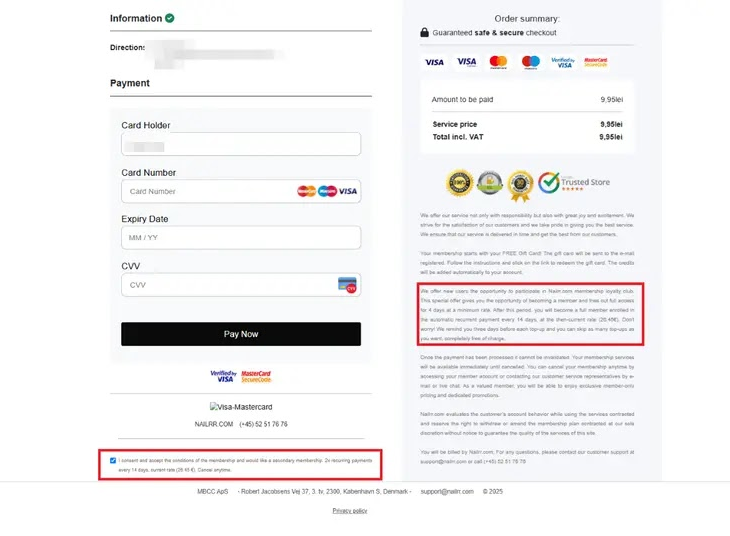Subscription-Based Scam Surge: Cybercriminals Use Recurring Payments to Drain Credit Card Accounts

A new wave of subscription-based scams is flooding the internet, using fake online stores, deceptive pricing, and social media ads to steal users’ credit card details and charge them repeatedly — all under the guise of “exclusive memberships.”
- Cybercriminals are deploying sophisticated fake e-commerce sites that mimic legitimate online stores selling clothes, electronics, and lifestyle products.

- These scams lure users with low-cost “mystery boxes” or heavily discounted offers to trigger impulse purchases.
- The real trap lies in the fine print — users unknowingly enroll in recurring subscriptions charging their cards every 14 days.

- Security Team has flagged over 200 such scam websites, many still active and using professional layouts to enhance trust.
- Scam sites often display misleading membership terms in barely visible text, tricking users into long-term charges.
- Attackers heavily utilize Facebook and other social platforms for targeted advertising, mimicking genuine brands.
- Many of the fake sites trace back to common infrastructure in Cyprus, hinting at an organized cybercrime syndicate.
- Some scam sites use fake credit systems to further obfuscate how much users are being charged in real currency.
- Victims often don’t realize they’ve been scammed until multiple unauthorized transactions appear on their statements.
These subscription-based scams represent a new frontier in credit card fraud, where deception is buried in design and fine print rather than in overt phishing. Net Protector Cyber Security urges users to read payment terms carefully, avoid impulse buys from ads, and monitor bank statements regularly. A trusted security suite with anti-phishing and fraud detection features is essential in this evolving digital landscape.
Comment(s)






